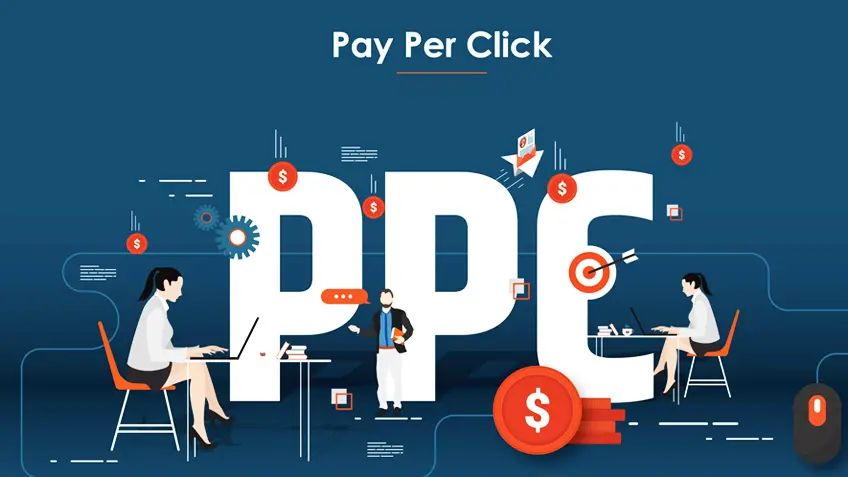- May 17, 2025
Table of Contents
Introduction
Local PPC management is a targeted approach to online advertising that helps businesses reach customers in specific geographic areas through pay-per-click (PPC) campaigns. Whether you run a brick-and-mortar store, a service-based company, or a local franchise, managing your local PPC efforts effectively ensures your ads appear to the right audience at the right time. By combining precise geo-targeting, relevant keywords, and compelling ad creatives, local PPC management drives high-intent traffic and boosts conversions. It also allows you to control your budget, measure performance, and continuously optimize results. With the right strategy, local PPC can be one of the most powerful tools for growing your presence in your community.
What Is Local PPC Management?
Local PPC Management refers to the strategic planning, execution, and optimization of pay-per-click advertising campaigns targeted at specific geographic areas. Unlike broader national or global PPC efforts, local PPC is designed to reach potential customers in your immediate vicinity—those most likely to visit your store, book your service, or become repeat clients. It involves using location-based keywords, geo-targeting tools, and platforms like Google Ads or Facebook Ads to maximize local visibility and conversions.
A strong local PPC management strategy ensures that your ads appear to the right audience at the right time. It includes setting location filters, optimizing ad copy with local terms, and continuously analyzing performance to improve ROI. For small businesses, this approach offers a cost-effective way to compete with larger brands in local search results.
Why It Matters for Local Businesses
Local PPC management is crucial for small and medium-sized businesses aiming to attract nearby customers. It allows you to appear at the top of search results when users in your area are actively looking for your products or services. By targeting a defined geographic radius, you can focus your budget on high-intent users who are more likely to visit your store, make a call, or convert online.
For local businesses competing with national chains or online marketplaces, effective PPC advertising levels the playing field. It provides instant visibility, drives targeted traffic, and delivers measurable results. With features like location extensions and call tracking, local PPC ensures your business is visible, accessible, and competitive in your specific market area.
Benefits of Local PPC Advertising
Local PPC advertising offers significant advantages for businesses looking to attract customers in specific geographic areas. Unlike traditional advertising methods or broad digital marketing campaigns, local PPC allows for precise targeting, measurable results, and cost-effective strategies tailored to your community. Below are some of the key benefits of local PPC advertising:
Hyper-Targeted Reach
One of the biggest advantages of local PPC Management is the ability to target users based on specific locations. Whether it’s by city, ZIP code, neighborhood, or even within a certain radius of your business, local PPC ensures your ads are shown only to people who are most likely to visit your store or request your services. This eliminates wasted spend on irrelevant clicks and focuses your budget on high-conversion prospects.
Instant Visibility in Local Search
Local PPC advertising places your business at the top of search engine results almost immediately. While SEO takes time to gain traction, PPC ads can be launched and seen by potential customers within hours. For local businesses trying to gain visibility quickly—such as new openings, time-sensitive promotions, or seasonal offers—PPC provides a powerful and immediate solution.
Cost-Effective Marketing Strategy
Since local PPC campaigns focus on a narrower audience, they often cost less than broader national campaigns. With proper management, you can control how much you spend per click, set daily or monthly budgets, and track your ROI in real-time. This budget flexibility allows small businesses to compete effectively with larger companies without overspending.
Measurable Results and Performance Tracking
With local PPC, you get access to detailed analytics and reporting. You can monitor which ads perform best, what keywords drive the most traffic, and how many users convert into customers. This data-driven approach enables ongoing optimization and smarter decision-making to continually improve results.
Better Mobile and Local Integration
Many consumers use smartphones to search for businesses “near me” while on the go. Local PPC integrates seamlessly with mobile platforms and features like Google Maps, click-to-call buttons, and directions. This increases the chances of attracting customers who are ready to take immediate action—like visiting your store or booking an appointment.
Competitive Edge in Your Area
With local PPC, even small businesses can outrank larger competitors in local search ads. By focusing on quality ad copy, high-intent keywords, and strategic location targeting, you can dominate search visibility in your specific area, attract more local customers, and build strong brand recognition within your community.
Understanding Local PPC Ads
Local PPC Management ads are online advertisements specifically designed to target potential customers within a defined geographic area. Whether you’re running a small retail store, a restaurant, or a local service business, these ads help you connect with users actively searching for your products or services nearby. Local PPC ads are typically served on platforms like Google Ads, Bing Ads, Facebook, and even local directories, ensuring your message reaches the right audience at the right place and time.
There are several types of local PPC ads that businesses commonly use:
1. Search Ads
These appear at the top of search engine results pages (SERPs) when users type in local queries like “best pizza near me” or “emergency plumber in Miami.” These ads include location-based keywords and often use ad extensions like phone numbers or addresses.
2. Display Ads
These are visual banner ads that appear on websites within the Google Display Network or other advertising networks. Local businesses use these to raise brand awareness in specific zip codes or cities, often targeting people based on browsing behavior or demographics.
3. Map Ads
Platforms like Google Maps allow businesses to promote their locations with sponsored listings. These are especially useful for brick-and-mortar locations, helping you appear at the top when users search in the Maps app.
4. Social Media Ads
Platforms like Facebook and Instagram offer highly customizable location targeting, enabling businesses to run local promotions, boost events, or showcase products to users in a specific area.
Choosing a Local PPC Company
When it comes to managing your local PPC campaigns, selecting the right local PPC company can make all the difference in achieving a strong return on investment. A specialized agency brings expertise, tools, and proven strategies to ensure your business gets the most out of every advertising dollar. Here’s how to make the right choice.
What to Look for in a Local PPC Agency
Start by evaluating the agency’s experience in managing local PPC advertising for businesses similar to yours. Look for case studies, client testimonials, and certifications like Google Ads Partner status. A great local PPC Management company will offer transparency in pricing, regular performance reporting, and a clear understanding of geo-targeting, local search trends, and conversion tracking.
They should also be proficient in using various ad platforms (Google, Bing, Facebook, etc.) and know how to craft compelling ad copy and landing pages that convert. Bonus points if the agency understands your local market and consumer behavior, as this insight can be crucial for campaign success.
In-House vs. Outsourced Local PPC Services
Some businesses consider managing PPC in-house to save on agency fees. While this might seem cost-effective, it often lacks the expertise and time commitment required for consistent performance. In-house management is viable if you have a dedicated, trained digital marketer familiar with PPC tools, bidding strategies, and analytics.
Outsourcing to a local PPC company, on the other hand, gives you access to a full team of experts, faster execution, and better results. Agencies stay up to date with platform changes, keyword trends, and algorithm updates—so you don’t have to.
Questions to Ask Before Hiring a PPC Partner
- What experience do you have with local PPC campaigns in my industry?
- How do you measure success and what KPIs will you report on?
- What is your strategy for targeting my local audience?
- Will I own the ad account and data?
- How often will we communicate and review results?
- Can you share examples of past client success stories?
By asking the right questions and selecting a capable, transparent, and experienced partner, you set your business up for local PPC success that drives meaningful traffic and revenue.
Local PPC Marketing Strategies
Implementing effective local PPC marketing strategies is essential for small and medium-sized businesses aiming to attract nearby customers and increase foot traffic or service calls. With the right approach, local PPC ads can drive qualified leads, boost brand awareness, and improve ROI. Below are some powerful strategies to optimize your local PPC marketing efforts:
Keyword Targeting with Local Intent
Start by conducting keyword research focused on your geographic area. Use tools like Google Keyword Planner to find terms people in your region are actively searching for. Combine service-based keywords with location modifiers (e.g., “plumber in Austin,” “best bakery downtown Chicago”) to target users who are ready to engage with a local business. Don’t forget to include long-tail and “near me” keywords to capture high-intent traffic.
Geo-Targeting and Radius Targeting
Geo-targeting allows you to define the exact locations where your ads will appear. Whether you target a specific city, ZIP code, or a radius around your business, this strategy ensures your ad spend goes toward people who are most likely to visit your store or use your services. Adjust bids based on location performance to focus more budget on high-converting areas.
Crafting Location-Relevant Ad Copy
Your ad copy should speak directly to local audiences. Include location names in your headlines and descriptions to catch the eye of nearby searchers. For example, “Affordable Dentist in Tampa” or “Same-Day HVAC Service in Brooklyn.” This not only boosts relevance but also helps improve your Quality Score on Google Ads.
Use of Location Extensions and Call Extensions
Enhance your local PPC Management ads with extensions that increase visibility and usability. Location extensions display your address and a map link, while call extensions allow users to contact you directly from the ad. These tools make it easy for potential customers to take action immediately.
Landing Page Optimization for Local Audiences
Once users click your ad, the landing page must match their expectations. Include your location, business hours, contact information, and customer reviews. The page should be mobile-friendly, fast-loading, and offer a clear call-to-action such as “Book Now,” “Call Today,” or “Get a Free Quote.”
Track and Optimize
Monitor your campaign metrics regularly—click-through rates, conversion rates, cost-per-click, and location-based performance. Use A/B testing for headlines, ad copy, and calls-to-action to refine results over time.
Managing Local Business PPC Campaigns
Effectively managing local business PPC (Pay-Per-Click) campaigns requires a balance of strategy, precision, and ongoing optimization. Below are the key components involved in successfully running geo-targeted PPC campaigns for local businesses:
Setting Up Geo-Targeted Campaigns
The foundation of local PPC management lies in geographic targeting. Set your campaigns to focus on a specific radius around your business, certain cities, ZIP codes, or custom regions. This ensures your ads appear only to users most likely to visit your store or engage your services, minimizing wasted ad spend.
Keyword and Ad Group Structure
Organize your campaigns into tightly themed ad groups with relevant keywords. Focus on location-specific terms like “dentist in Brooklyn” or “HVAC repair Tampa.” Use negative keywords to filter out irrelevant traffic and improve targeting accuracy.
A/B Testing and Conversion Tracking
Regularly test different versions of ad copy, headlines, and call-to-action buttons. A/B testing helps determine what resonates most with your audience. Use conversion tracking tools (like Google Tag Manager or built-in platform tracking) to measure actions such as calls, form submissions, or store visits.
Bid Strategies and Budget Management
Choose the right bidding strategy based on your goals—maximize clicks, target cost-per-acquisition (CPA), or maximize conversions. Set daily and monthly budgets that align with your business size and monitor your ad spend to prevent over-budgeting. Adjust bids based on high-performing times, devices, or locations.
Performance Monitoring and Optimization
Continuously analyze key metrics such as click-through rate (CTR), cost-per-click (CPC), conversion rate, and return on ad spend (ROAS). Pause underperforming ads, refine keyword lists, and tweak targeting settings to boost efficiency.
Local PPC Management Best Practices
To run successful and cost-effective local pay-per-click (PPC) campaigns, businesses must follow a set of best practices that ensure high visibility, relevant targeting, and optimal return on ad spend. Local PPC management goes beyond setting up ads—it involves strategic execution, continuous monitoring, and smart optimization. Here are some key best practices to follow:
Use Precise Geo-Targeting
One of the biggest advantages of local PPC is the ability to target customers based on location. Set up geographic targeting using specific cities, ZIP codes, or a radius around your business address. This ensures your ads are seen only by users in your service area, preventing wasted clicks from irrelevant locations.
Include Local Keywords and Location Modifiers
Incorporate geo-specific terms and phrases into your keywords. Instead of targeting broad terms like “plumber” or “dentist,” use “plumber in Austin” or “emergency dentist Chicago.” These modifiers not only improve targeting accuracy but also enhance ad relevance and Quality Scores.
Leverage Ad Extensions
Use all relevant ad extensions, especially location and call extensions. Location extensions display your business address and make your ad more prominent in search results. Call extensions let users directly tap to call from mobile search ads, driving instant engagement.
Create Location-Optimized Landing Pages
Ensure that each PPC ad links to a landing page that matches the user’s location and intent. Include your city or neighborhood name, address, phone number, business hours, and a strong local call-to-action. Mobile-friendly, fast-loading landing pages with local testimonials or maps help increase conversions.
Schedule Ads Strategically
Run your ads during your business hours or peak customer activity times. Use ad scheduling features to ensure you’re not paying for clicks when your business is closed or your team is unavailable to respond.
Monitor, Analyze, and Adjust Regularly
Track performance metrics like CTR, CPC, conversion rate, and location-based engagement. Use this data to pause low-performing ads, adjust bidding strategies, and refine keyword targeting. Continuous optimization helps you stay competitive and cost-efficient.
Combine Local PPC with Local SEO
Integrate your local PPC strategy with local SEO efforts. A well-optimized Google Business Profile and local citations complement PPC by improving visibility in both paid and organic local search results.
Common Mistakes in Local PPC and How to Avoid Them
Running a local PPC campaign can be highly effective, but several common mistakes can lead to wasted ad spend and missed opportunities. Understanding these pitfalls and knowing how to avoid them can greatly improve your campaign’s performance.
Poor Geo-Targeting Settings
Mistake: Targeting too broad an area or failing to define your local region accurately can result in irrelevant clicks and low ROI.
Solution: Use precise geographic targeting by selecting specific cities, ZIP codes, or setting a radius around your business. Regularly review and adjust your targeting based on performance data.
Ignoring Negative Keywords
Mistake: Not using negative keywords allows irrelevant search queries to trigger your ads, reducing ad relevance and wasting your budget.
Solution: Regularly update your negative keyword list to block unqualified traffic. Analyze search terms reports to identify and exclude non-converting queries.
Generic Ad Copy
Mistake: Using the same ad copy for all locations doesn’t resonate with a local audience and may reduce click-through rates.
Solution: Customize your ad copy to include local terms, landmarks, or events. Show potential customers that you are part of their community.
Weak Landing Pages
Mistake: Directing users to a generic homepage or poorly optimized landing page can cause high bounce rates and low conversions.
Solution: Create dedicated landing pages for each location or service area, with local contact info, reviews, and clear calls to action.
Lack of Performance Tracking
Mistake: Not tracking conversions or calls leads to a lack of insight into what’s working.
Solution: Set up conversion tracking using tools like Google Ads, Google Analytics, or call tracking software to monitor ROI and make data-driven decisions.
Final Thoughts
Local PPC management is a powerful tool for businesses aiming to attract nearby customers and boost visibility in their immediate market. When executed with strategic targeting, compelling ad copy, and ongoing optimization, local PPC can deliver high-quality leads, increased foot traffic, and a strong return on investment. By leveraging geo-targeting, location-specific keywords, and effective budget control, businesses can outperform competitors and build stronger connections with their local audience. Whether you manage campaigns in-house or partner with a local PPC company, focusing on local intent and performance tracking is key to success. In today’s competitive landscape, smart local PPC management is not just beneficial—it’s essential.




